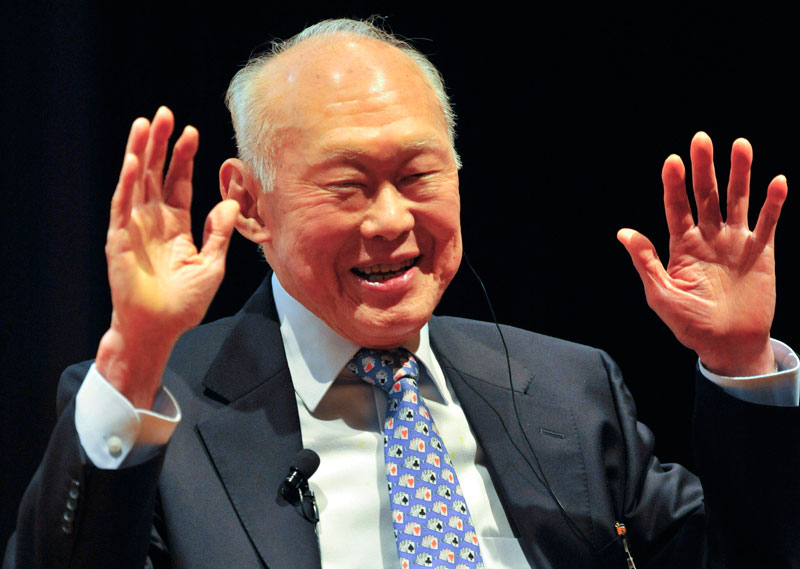Singaporean Founding Father Lee Kuan Yew Dies Aged 91

(Beijing) – Lee Kuan Yew, who led Singapore from independence to its emergence as an Asian Tiger, died on March 23 at the age of 91.
Lee was admitted to Singapore General Hospital on February 5 with severe pneumonia.
The Cambridge-educated lawyer ruled the city-state for more than three decades as its first prime minister, building a reputation in those years as the architect of Singapore's economic miracle. Lee stepped down as prime minister in 1990, but continued to influence the country's political agenda for the rest of his life.
Former U.S. secretary of state Henry Kissinger told Caixin that Lee "is one of the great men of our period."
"He took a run-down seaport and built a country based on his belief in the intellectual ability of his largely Chinese population," Kissinger said. "He established a competitive advantage based on the discipline and intelligence of his society."
Lee is credited with developing a paternalistic model of governance that is sometimes studied by other countries, notably China.
"He has done it with discipline perhaps considered excessive by Western countries, but I think it will gradually evolve into a more participatory country," Kissinger said. "He is one of the men who have created a society that can continue to grow and we'll continue to be inspired by him."
Lee wrote in his memoirs that "Singapore depends on the strength and influence of the family to keep society orderly and maintain a culture of thrift, hard work, filial piety and respect for elders and for scholarship and learning. These values make for a productive people and help economic growth."
Lee was a founding member of the ruling People's Action Party (PAP) in 1954. After Singapore's independence from British colonial rule and separation from Malaysia in 1965, Lee led the party as it co-opted the interests of labor unions through the backing of the National Trades Union Congress and the military.
His vision for modernizing Singapore was based on free-market policies that were tied to the political fortunes of the PAP. Under his rule, a mandatory personal savings scheme called the Central Provident Fund was linked to loan policies for government-built housing in PAP-controlled districts, an arrangement that provided the PAP with strong public support.
Singapore was ranked No. 9 in the United Nations' human development index in 2014 – the highest of any Asian nation. The index uses a range of factors, from education to life expectancy, to try to show how developed countries are rated. South Korea was No. 15, Japan was ranked No. 17 and China finished No. 91.
- MOST POPULAR




